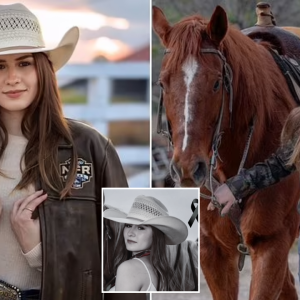In a surprising twist in the music industry, country stars Faith Hill and Jason Aldean have decided to withdraw from a high-profile concert involving global superstar Beyoncé, citing concerns over the authenticity of her newfound interest in the genre. Their decision has stirred significant buzz, sparking heated debates about the boundaries and inclusivity of country music. The controversy unfolded following their remarks that Beyoncé should “Go play dress-up,” which has been interpreted as a direct critique of her attempt to embrace the country genre.

Beyoncé, known for her versatile range encompassing pop, R&B, and hip-hop, recently ventured into country music, hoping to broaden her artistic horizons. Her foray into the genre has been met with a mix of excitement and skepticism from both fans and musicians alike. For some, her attempt is seen as a bold experiment, while others view it as an intrusion into a historically guarded cultural space. The debate escalated when she was invited to participate in a major concert celebrating the diversity of American music, which was supposed to include some of country’s biggest names like Faith Hill and Jason Aldean.
Faith Hill and Jason Aldean, two of country music’s most recognizable figures, were initially enthusiastic about performing at the event. However, upon learning about Beyoncé’s inclusion and her plans to perform country tracks, they expressed discomfort with sharing the stage.
Sources close to the artists reveal that both Hill and Aldean felt that Beyoncé lacked the deep-rooted connection to the genre necessary to deliver an authentic performance. Aldean reportedly emphasized his belief that country music isn’t merely about sound or style but embodies a unique culture and lifestyle. He purportedly said, “You ain’t country, girl. Go play dress-up.” This remark epitomizes their stance that Beyoncé’s presence in the concert would undermine the genre’s authenticity and heritage.

The reaction from fans has been polarized. Many fans of Beyoncé and progressive country music have come to her defense, arguing that the genre should be more inclusive and adaptable to modern times. They view the criticism from Hill and Aldean as outdated gatekeeping that limits the genre’s potential to evolve.
On the other hand, traditional country music fans largely side with Hill and Aldean. They assert that country music is a unique art form with a distinct history and culture that cannot be casually entered. For them, Beyoncé’s involvement seems to reflect a commercial appropriation rather than a genuine artistic endeavor.
Several musicians also weighed in. Willie Nelson, known for his progressive stance in country music, voiced his support for the concert’s inclusive vision. In contrast, more traditional artists like Alan Jackson reiterated the importance of maintaining the genre’s roots.
Beyoncé, known for her unyielding confidence, responded to the backlash with grace and determination. In a statement, she emphasized her genuine respect for country music and its rich history. She stated that her intentions were not to appropriate but to celebrate the genre by bringing her interpretation to it. “I admire country music for its storytelling and its depth of emotion,” she said, “and I only wish to honor its legacy through my own lens.”

Her team reiterated that she had worked closely with respected country musicians and songwriters to ensure that her contribution would be meaningful. Despite the controversy, she remains committed to her journey in country music.
This incident has broader implications for the music industry. It raises important questions about genre boundaries and the inclusivity of historically exclusive music forms. For decades, genres like country, jazz, and classical have been seen as bastions of tradition. However, the digital age has eroded such distinctions, blurring lines between genres and giving rise to innovative cross-genre collaborations.
Some see this controversy as a necessary conversation that the industry must have. How should genres evolve in a rapidly changing world? Should they open up to new interpretations, or should they protect the purity of their roots?
The withdrawal of Hill and Aldean from the concert with Beyoncé is just one skirmish in a much larger cultural debate. Their decision may reflect a broader sentiment within the traditional country music community that is hesitant to embrace change. However, as music continues to globalize and digital platforms democratize access, such confrontations will likely become more common.
Faith Hill and Jason Aldean’s decision to back out of the concert with Beyoncé is a notable reflection of ongoing cultural tensions in the music industry. While traditionalists believe in maintaining a firm line around genres, others like Beyoncé see music as an ever-evolving art form, ripe for creative reinterpretation. Only time will tell how country music—and other genres—navigate this delicate balance between tradition and inclusivity.
In the meantime, both Hill and Aldean have made their stance clear, while Beyoncé remains resolute in her pursuit of musical exploration. What remains to be seen is how this incident will influence future collaborations and what lessons the industry can glean from this dialogue. For now, the concert will proceed without Hill and Aldean, and Beyoncé’s journey in country music will continue, whether accepted or not by the genre’s purists.






